Rome has long been known for its mystical stories relating to its origins and legendary gods. These have been represented in works of art and literature, with Ovid as the master of giving these Latin myths and legends a physical form.
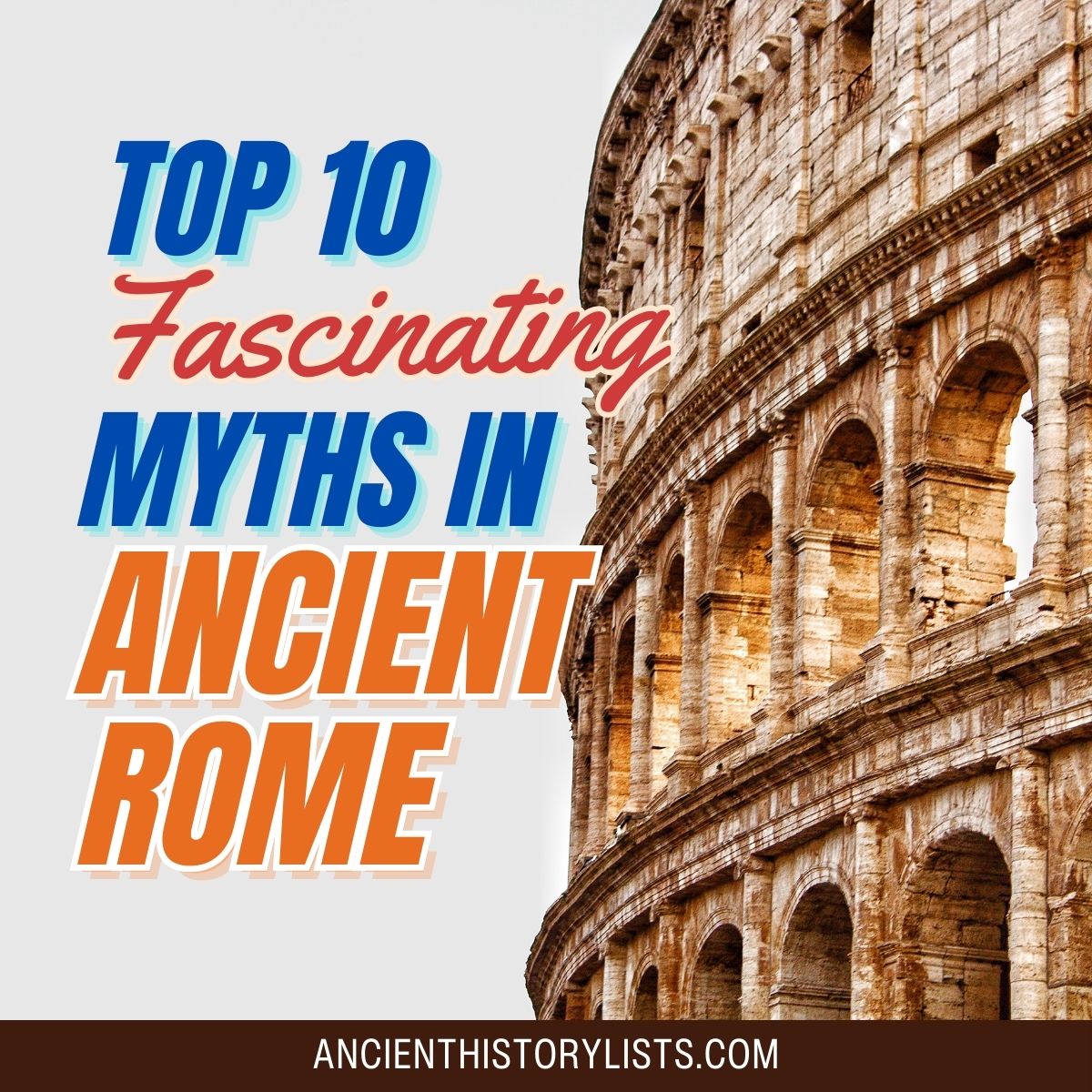
The Romans have always believed in the supernatural which is reflected in their beliefs, and the theme of heroism is one of the most common and important themes in many of their stories. The legends deal with the power of morality and politics. From founding myths to the legends of divine law, Rome has them all.
Here is a list of some fascinating famous mythological and legendary stories:
1. The Story of Romulus and Remus
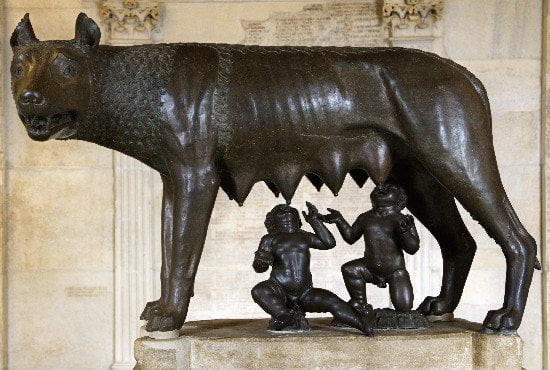
According to Roman mythology, the story of these twin brothers tells of the origins of Rome. They were the children of Mars and Rhea Silvia and according to Virgil and many other writers, their adventures were inextricably linked to the foundation of Rome.
Born in Alba Longa, they were seen as a threat to King Amulius and so to save himself he ordered them to be abandoned on the banks of the River Tiber. The newborns were left to die but Tiberius, the mythological father of the river, saved them and they survived under his care. A female wolf suckled them in a cave near to Lupercal. Later on, they were adopted by a shepherd, Faustulus. Unaware of their identity, they grew up working as farmers and shepherds. But no matter how far they had come from their original birth parents and home, their roots did not leave them and their inbuilt leadership skills helped them gather many supporters.
As they grew into adulthood, they became involved in an argument between the supporters of Amulius and Numitor. As a consequence, Remus was imprisoned in Alba Longa, the very place where he was born. The king and Remus’ grandfather suspected his real identity. Meanwhile, Romulus was busy looking for ways to free his brother. While all this was taking place, they both got to know about their real identity, and they joined forces with their grandfather to restore the throne. Finally, they won and Amulius was killed.
As they arrived back to the seven hills, they were caught up in an argument about where to build the city. Romulus preferred Palatine Hill, but Remus wanted it to be on Aventine Hill. As they could not reach an agreement, they asked the gods to help by using augury or the interpretation of omens. Romulus saw 12 auspicious birds and claimed a win as Remus only saw six. This gave rise to a new dispute and eventually Remus was killed. Romulus then went on to found the city of Rome.
2. History of Aeneas
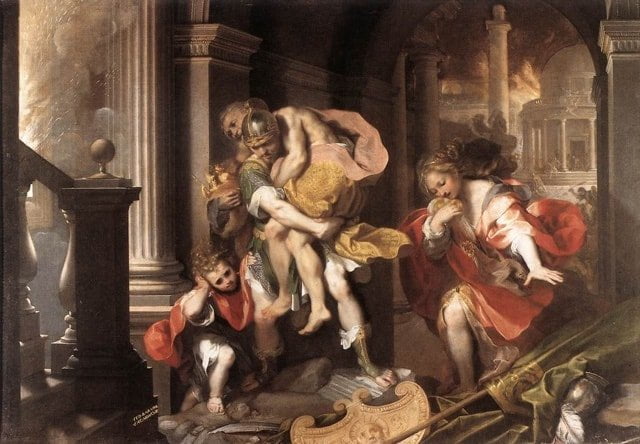
Aeneas is the mythological hero of both Rome and Troy. Homer mentions him in the Illiad as the first cousin of King Priam and Troy. In the Aeneid, Virgil describes him as a hero and the ancestor of Romulus and Remus.
The Aeneid tells that Aeneas was one among the few Trojans who were neither killed nor enslaved after Troy was defeated. After gathering a group and being commanded by the gods to flee, he traveled to Italy to become the progenitor of the Romans. This team was called the Aeneads. He carried with him the statues of Trojan gods and planted them in Italy. They wandered for six years and finally settled in Carthage.
Here Aeneas and the queen of Carthage, Dido, had a year-long love affair after which Dido proposed to him so that they could reign over both the Trojans and the Carthaginians together. Aphrodite (the Roman version of Venus and the mother of Aeneas), with the help of Jupiter, made Aeneas realize his true motives which caused him to leave the place secretly. The pain of his leaving led Dido to utter a curse of enmity over Rome. Afterwards, she stabbed herself with the sword that she had given to Aeneas during their first meeting.
The Aeneads then returned to Sicily and Aeneas made his final settlement in Latium. To honor his father who had died a year earlier, Aeneas arranged a series of funeral games. After his own death, he descended to the underworld and met his father and Dido and learned about the future of his successors, in other words, Roman history. This story about the ancestry of the Romans through the Trojans via Aeneas and the lands that he founded is regarded with great respect by historians.
3. Myth of Jupiter and the Bee
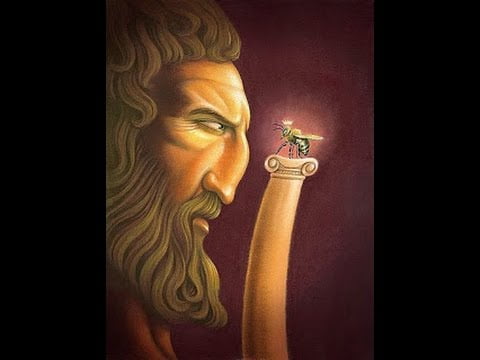
Roman legends have always been successful in teaching life lessons. One such myth of sweetness and vengeance is the myth of Jupiter and the bee. The story delivers the moral of how revenge can have dire consequences.
One fine day after being irritated by the mortals taking away her honey, the queen of the hive decided to visit Jupiter. After reaching Olympus, she offered fresh honey to Jupiter. Delighted by the taste of it, Jupiter promised to fulfil one of her wishes. She asked: “Give me, I pray thee, a sting, which if any mortal approaches to take my honey, I may kill him.” Displeased by her request because of his love for the human race he did grant her wish but at the risk of her own life. He said: “For if you use your sting, it shall remain in the wound you make, and then you will die from the loss of it.” (Source)
The moral of the story is to be content with what you have. Wishing good for oneself at a cost to others has always led to downfall. Even today, if a bee uses its sting, it will result in her own death.
4. Story of Apollo and Cassandra
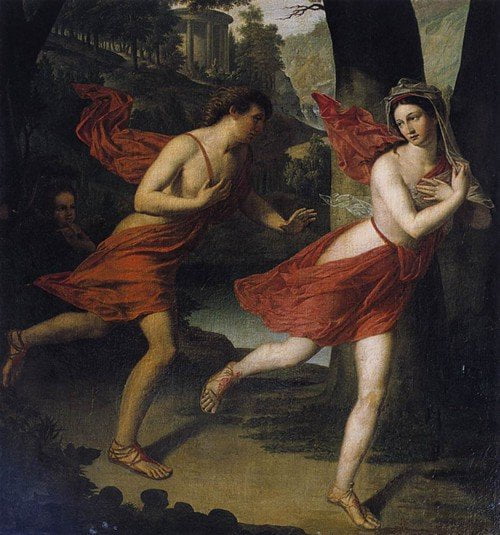
Apollo is one of the most prominent gods of the Greek and Roman pantheon. He is the only god who appears in both Greek and Roman mythology. The myth of Apollo and Cassandra was behind the fall of Troy because Cassandra was the most beautiful daughter of King Priam.
Apollo was in love with her, and to make his love reach fruition he promised Cassandra the power of prophecy on her agreement to comply with his wishes. She agreed to his conditions and received the gift of prophecy.
After getting what she wanted she refused to form a union with him causing Apollo to burst into flames. He then cursed her so that no one would believe her prophecies no matter what. As a result, people began to consider her a liar and a mad woman, and she was imprisoned in a citadel by her own father.
Despite several warnings to the Trojans about the Greeks, no one believed her words and Troy was ultimately destroyed.
See also:
- Top 10 Ancient Roman Goddesses
- Top 10 Ancient Greek Gods
- Top 10 Ancient Greek Goddesses
- Top 10 Most Worshiped Ancient Egyptian Gods
5. Legend of Lucretia
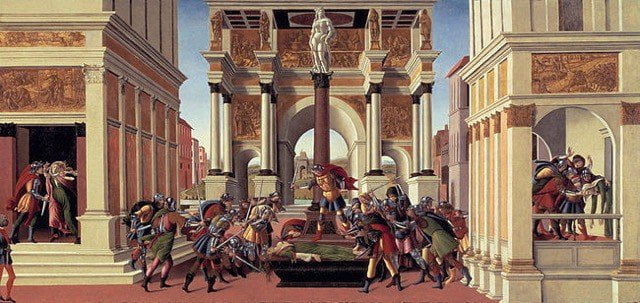
Lucretia was the legendary heroine of Rome whose suicide it was believed changed the Roman government from a monarchy to a republic. Her rape by an Etruscan king’s son caused an immediate rebellion against the Roman monarchy, and the incident whipped up a storm of dissatisfaction with the tyrannical rule of the last Roman king, Lucius Tarquinius Superbus.
The consequence was that all prominent and influential families formed a republic against Latin and Etruscan intervention and the first consul of the Roman Republic was Lucretia’s own husband.
As a result, rape became a top-tier theme in European literature and art. Historians do not take her story as a myth but as an actual incident that left an imprint on the old world forever.
6. The Myth of Jupiter and Io
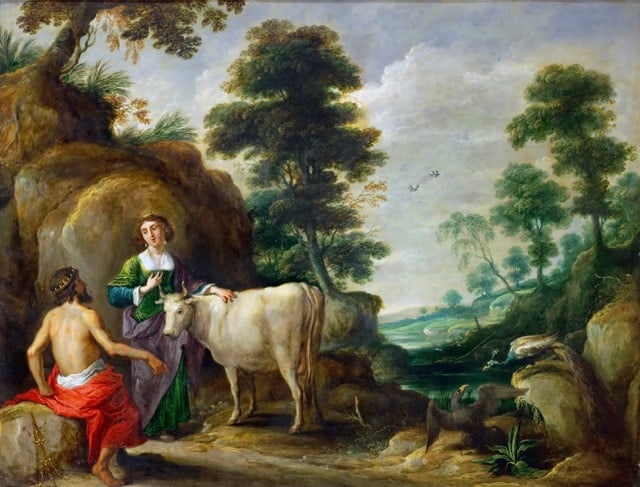
The priestess Io was one of the mortal lovers of Jupiter who was known for his Casanova-like behavior. Jupiter fell in love with Io and changed himself into a black cloud so that he could live closer to her while hiding from his wife, Juno. However, Juno was not a woman to be fooled.
She noticed the black cloud and easily recognized it as her husband. The very moment Juno arrived on Earth, Jupiter changed Io into a white cow so as to protect her from his wife’s wrath. Despite several attempts to conceal Io, Juno found the white cow and put it under the surveillance of Argus who had a hundred eyes which were hardly ever closed.
In order to free Io, Jupiter sent his son Mercury to tell stories to Argus until he fell asleep. Mercury was successful in his task of making Argus sleep, then he killed him and freed Io. Knowing all this, Juno was so upset that she sent a venomous gadfly to sting Io, or the white cow, for a lifetime.
It was only when Jupiter vowed never to chase Io again that Juno was set free from imprisonment. Afterwards, she went to Egypt, settled there and became the first Egyptian goddess.
7. Legendary Woman Cloelia
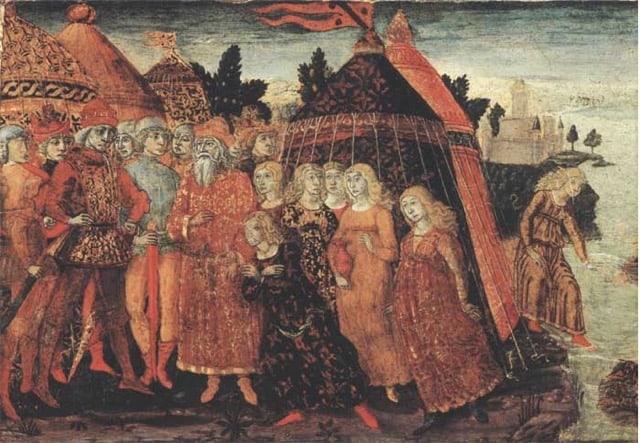
Cloelia is considered as the bravest of all women and belonged to the earliest of Roman history. After the war between Clusium and Rome came to an end because of a peace treaty in 508 BC, the Etruscan king, Lars Porsena, took Roman hostages.
One of them was young Cloelia who fled the hostage camps leading a group of Roman virgins. She escaped on a horse and swam across the River Tiber. Lars Porsena then made a condition for her return.
On her return, Porsena was so impressed by her courage that he granted her wish to take half of the hostages. She chose the young Roman men so that the war could be continued. Her wit and bravery was invaluable to the Romans and in her honor, an equestrian statue was built at Via Sacra.
8. Pluto and the River Styx
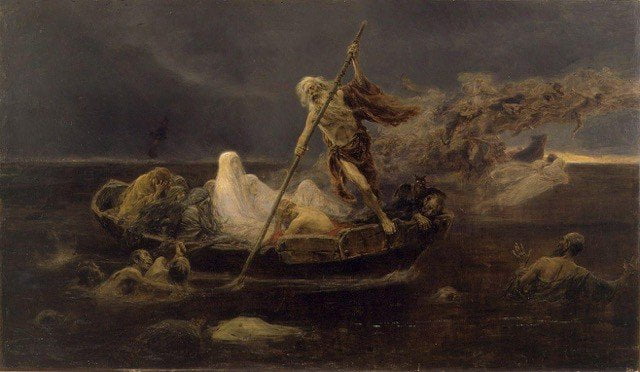
The planet Pluto was named after the Roman god of death. Both the planet and the god signified coldness. According to Roman myth, anyone who dies has to travel to the underworld.
First, the dead have to cross the Styx, also known as the River of the Dead. The dead person is buried with a coin to pay the ferrymen Charon for the ride across the river. The coin has to be kept in the mouth of the deceased, and only then will Charon transport their soul across.
The planet Pluto’s moon gets its name from the boatman Charon. The water of this river was considered a bad omen as even the gods could not escape its repercussions. If anyone came into contact with it, they would lose their voice for nine years.
9. Myths Around Hercules
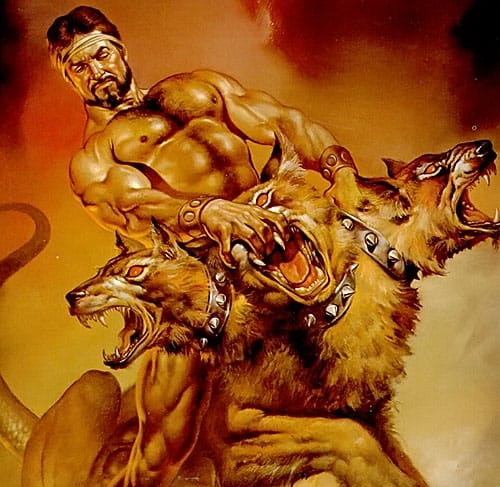
Famous for his incredible strength, Hercules was adapted by the Romans from a piece of art from Greek mythology. He was half man and half god. Hercules has several myths attached to him, the most popular being the Twelve Labors of Hercules. These are as follows:
- Hercules and the Nemean Lion
- Hercules and Hydra
- Hercules and the Ceryneian Hind
- Hercules and the Erymanthian Boar
- Hercules and the Augean Stables
- Hercules and the Stymphalian Birds
- Hercules and the Cretan Bull
- Hercules and the Mares of Diomedes
- Hercules and the Belt of Hippolyta
- Hercules and the Cattle of Geryon
- Hercules and the Apples of the Hesperides
- Hercules and Cerberus
The myths showed Hercules as a symbol of the infinite power which the demi-god possessed. He has been a prominent figure in later Western art and literature as well.
10. The Myth of Janus
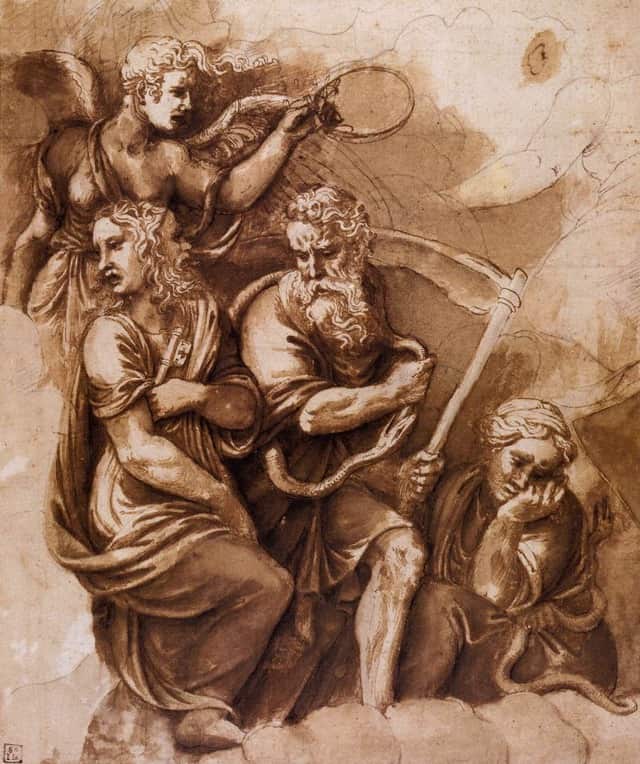
Janus, the Roman god of beginnings, had two faces, one reflecting the past and the other the future. Even the month of January owes its name to Janus. Moreover, it is he who was responsible for the motions and changes that occur in time.
He played an essential role in ancient Roman myth, for example, when Romulus kidnapped a Sabine woman and Janus came into the picture as the savior. He saved the woman by flooding the way to her with a volcanic hot spring which buried all the kidnappers under the ash and boiling water.
Conclusion
There are innumerable myths and stories from Roman civilization. Some are even adaptations from Greek mythology. But no matter what, ancient Rome has been a cradle of culture from which future generations have developed their own beliefs and myths.
In the second myth, “History of Aeneas”, it says that Aphrodite is the Roman version of Venus. Actually, the opposite is true. Aphrodite is the Greek god of love, beauty, etc.
Fun fact:
Since other months, like January, are named after Roman gods, you’d be forgiven for thinking February was named after the Roman god Februus. But, the word February comes from the Roman festival of purification called Februa, during which people were ritually washed.
Google it! It’s true!